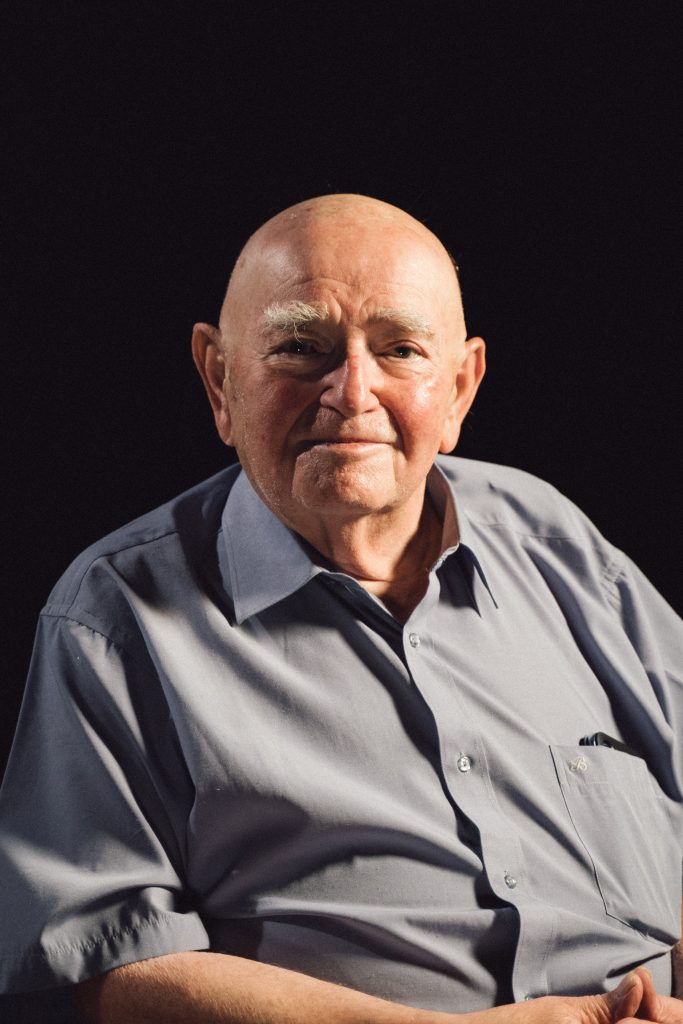
Alexander Stín was born on October 23, 1939 in Budapest to parents of Jewish origin. At the time of the anti-Jewish persecutions, the family lived in Nové Zámky, which became part of Hungary after the Arbitration of Vienna.
After being imprisoned in the ghetto in Nové Zámky, he and his mother were taken to a hospital in Budapest, where his younger brother Peter was born in June 1944. His brother did not survive till the he end of the war – he died of malnutrition shortly before the liberation. He spent the rest of the war in Budapest, first in a sheltered apartment, then in the ghetto, where he witnessed executions of Jews, raids and shortages of food and water. After the liberation, they lived in his grandparents’ house in Budapest, later they returned to Nové Zámky, where Alexander entered a folk school. His parents restored the butcher’s shop, which had been arized during the war. Butcher´s shop was again nationalized along with their house after the coup. He attended the high school of chemistry in Banská Štiavnica. After graduation he worked in an industrial combine. In October, the same year, he had to enlist for military service in Jindřichův Hradec and got up to the position of a company sergeant. After his compulsory military service ended in the 1960s, he started working at Elektrosvit. He completed his education by studying to become a certified technician without an engineering degree. In the 1970s, he started to work in the physical educational union in Nové Zámky. In 1985, at the Spartakiada, he had disagreements with the chief secretary of the Central Committee of the Communist Party of the Soviet Union, Valent. After that, he was transferred to the regional committee in Bratislava and after 1989 he joined the Central Committee of the Slovak Union of Physical Education and Culture (SZTK). He later resigned from this position, due to suspicions that funds were being unfairly distributed among the various sports clubs. He should have been awarded a plaque at the celebration of the 10th anniversary of the SZTK, but he refused to accept it.
The full story of the witness can be found in the online archive Memory of Nations.
